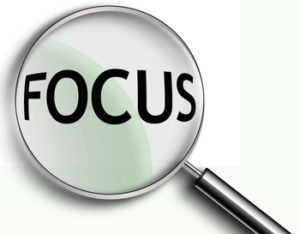 Forbes | by Joan Gurvis | Nov. 25, 2009
Forbes | by Joan Gurvis | Nov. 25, 2009
If having a balanced life was elusive in the fast-paced good times, it can seem impossible in the fast-paced tough times.
The pressures on leaders are huge. Distractions are everywhere. As work demands grow, our inclination is to continue to try to do more things more quickly, to fit everything in. We push ourselves, our co-workers and our employees to keep up the intense pace, but in so doing, we leave ourselves without adequate time to stop, reflect and focus.
It’s time for new thinking about balance, for yourself and your organization. Balance isn’t about the hours in the day or a just-so parceling out of time. It’s about choice. It is about being clear about what matters, putting your energy where it counts and helping others to do the same.
Focus is the new key to balance.
To establish (or regain) your equilibrium, try these strategies:
First, get clear on your values and priorities. People often define work-life balance as meaning they have equal or sufficient time for all they need to do or want to experience: career, family, friends, community, health and leisure pursuits. But by this measure, there is always more to do in not enough time. Searching for balance can become all-consuming and nonproductive.
Instead, push for clarity. Articulate your real priorities and manage them. What do you value most in your life? What do you value as a leader? What is the big picture? What strategies or efforts will have the most impact? What can be postponed or discarded?
Next, decouple time from effectiveness. When you face a tough challenge or a huge to-do list, your human nature urges you to push harder and work longer hours. Stopping, easing back or even just shifting your focus seems counterintuitive–but that’s exactly what you may need to do. If you’re working late at the office, 14 hours a day, day in and day out, you’ve been tricked into thinking your efficiency is maximized by your intense work effort. In fact, leaving early a few nights a week or delegating might be a better solution.
Every leader is more effective if he or she knows how to tell when it’s time to push through and when it’s time to step back and regroup. The typical assumption in U.S. culture is that a leader’s effectiveness corresponds to the amount of time and energy he or she spends on the job. If that were true, leaders who are seen as having a strong balance between work and personal life would receive low marks on performance. In fact, the opposite is true. Research we’ve done at the Center for Creative Leadership shows that work-life balance improves a leader’s effectiveness. Leaders who are rated “more effective” have balance scores 16% higher than less-effective leaders.
Then, focus your energy. Balance also comes when you give your priorities focused attention. Multitasking, interruptions and fragmented days leave most of us feeling a lack of accomplishment or overwhelmed. In addition to typical time-management tactics, such as limiting your e-mail time or turning off your phone, BlackBerry or iPod, try these strategies:
- Change mental channels. In order to effectively give each activity or challenge your full attention, you need to practice your ability to move on to the next thing. One extremely busy executive we know made a list of all his priorities, including his work demands, going out for runs and staying connected with friends. Although his time outside of work was limited, he felt he maintained a whole life. He described the way he switched between activities as “channel changing.” Unlike multitasking, channel changing allows you to do things in focused chunks. It is more effective and generally more satisfying. Think about what will give you value personally and professionally. Always do one thing at a time.
- Think small. You won’t be able to give your life a total makeover (and you probably wouldn’t want to), so consider what small things are getting in your way. What one lever can you pull that will make a difference? What incremental change can you make and build on? Eliminate a weekly meeting; block (and use) three hours for strategic thinking and planning; pick some tasks to delegate or share.
- Invest in your health. Diet, exercise and sleep contribute to performance and effectiveness. Healthful habits are known to be extremely important for relieving stress and preventing illness.
Finally, make balance an organizational imperative. Don’t assume that others are clear about their business priorities. As a leader, your ability to focus will bring clarity to chaos and help your employees reevaluate where they put their time and talent. If you as a leader aren’t focused on your key priorities, others won’t be on theirs.
. . . more
